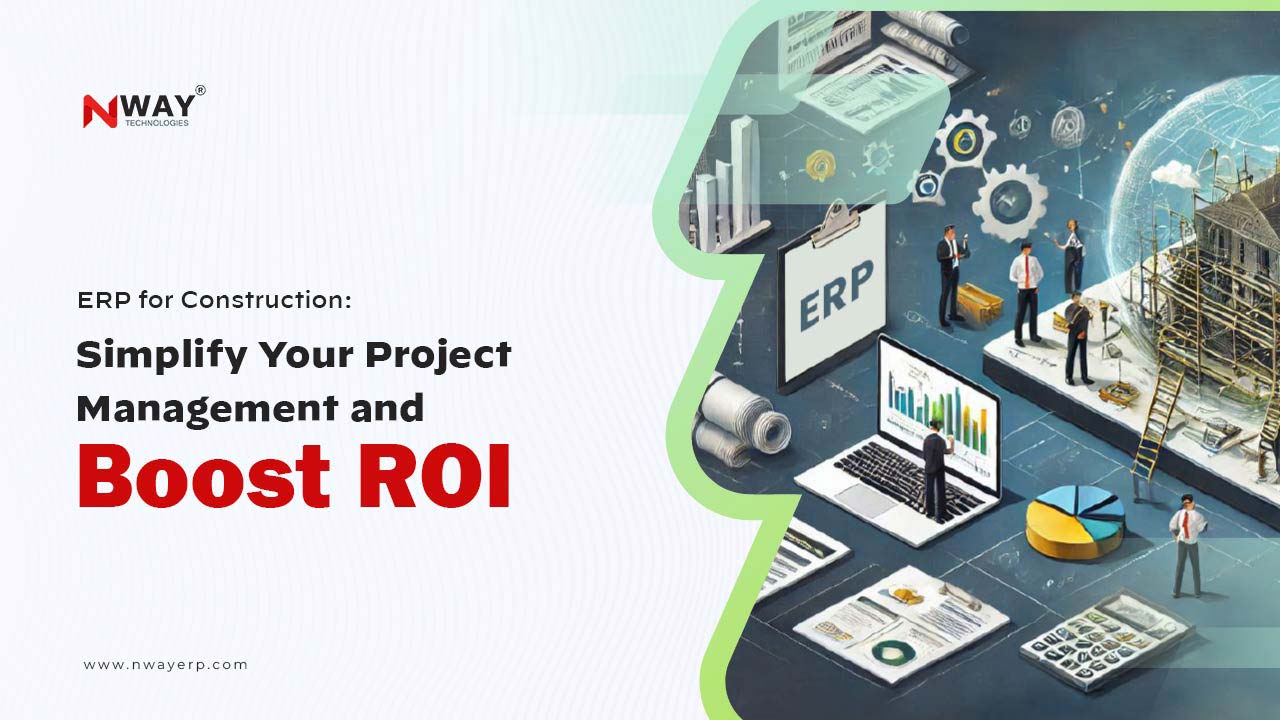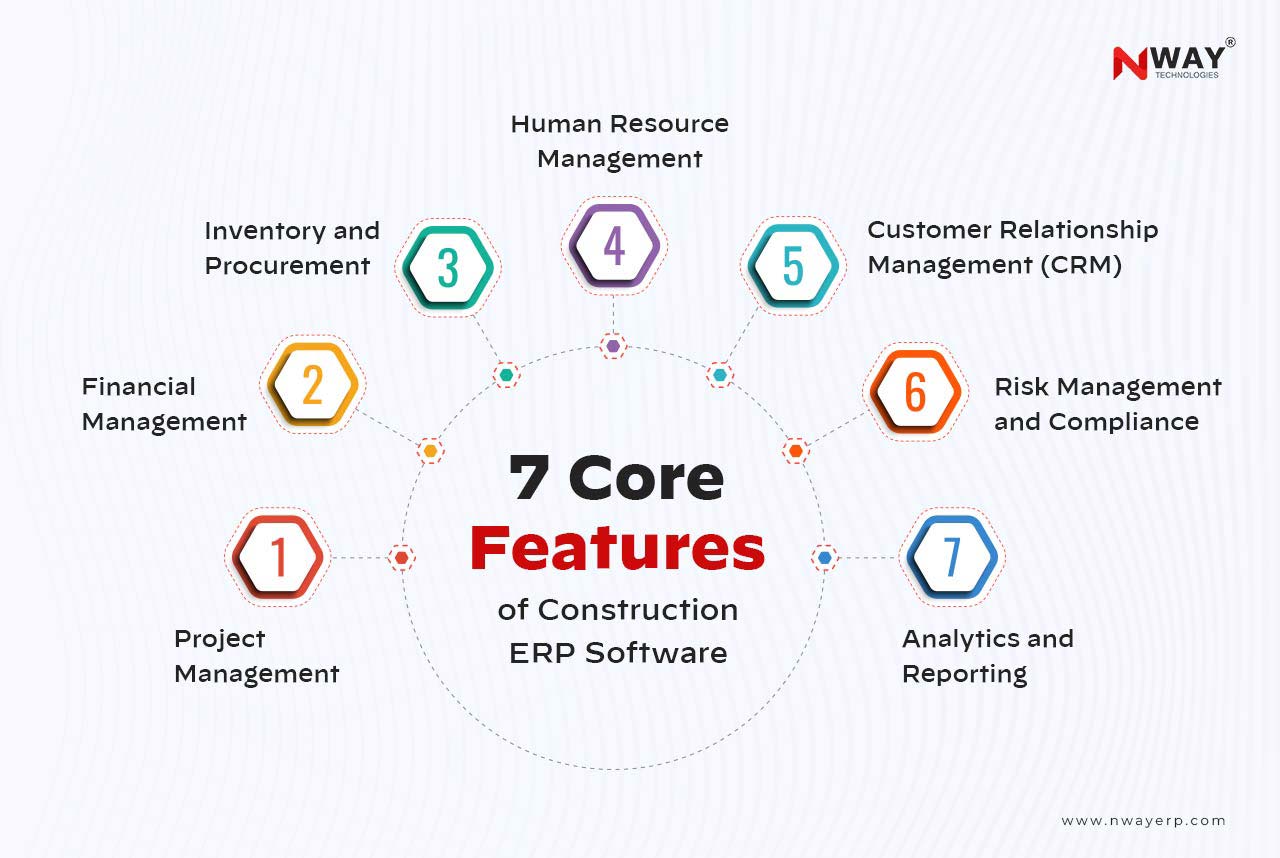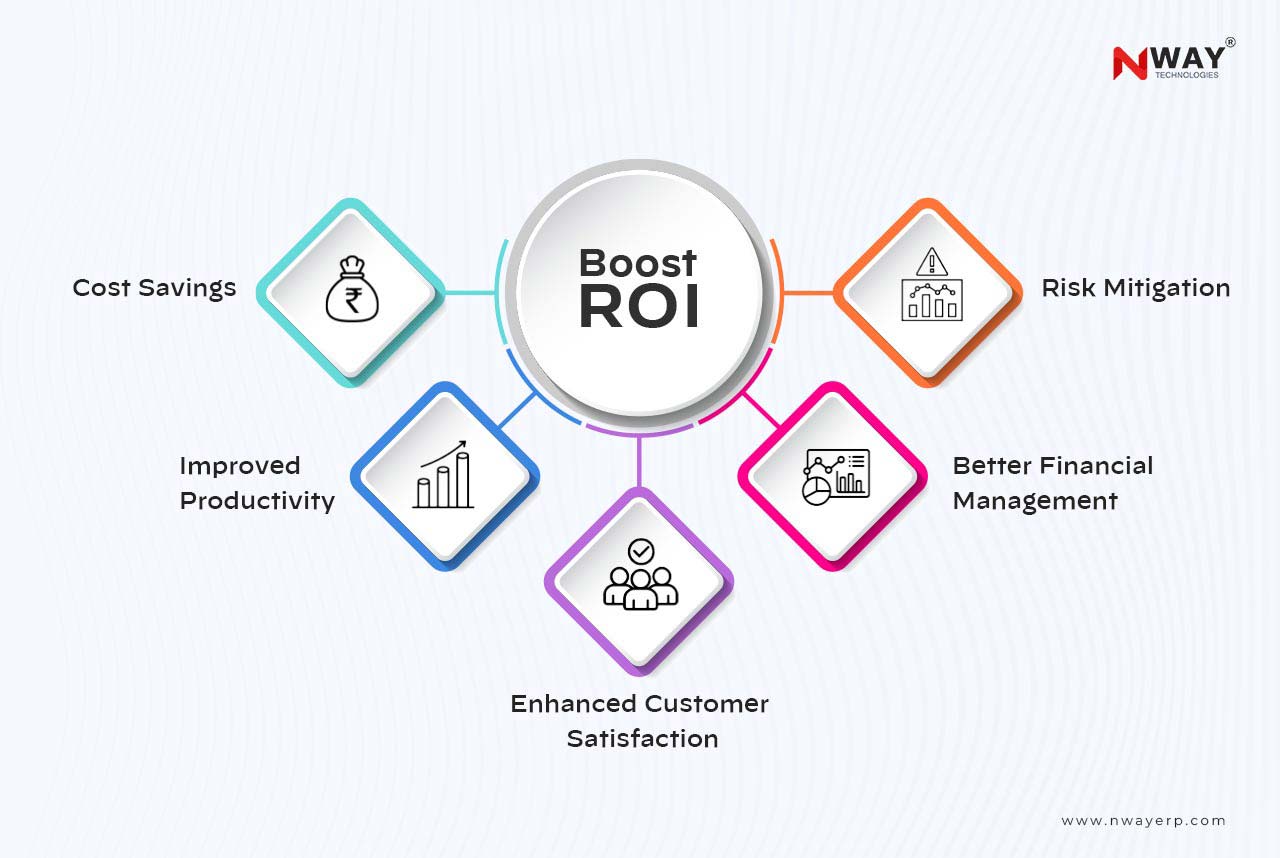The construction industry is one of the most complex and demanding industries, requiring meticulous planning, coordination, and execution. Construction companies face numerous challenges from managing multiple projects to ensuring compliance, tracking expenses, and optimizing resources. Construction ERP software provides project management, streamlines operations, and significantly boosts Return on Investment (ROI).
Read this blog to learn how construction ERP software is changing the entire landscape in the industry, the challenges it addresses, its core functionalities, and how it delivers tangible advantages like enhanced efficiency, reduced costs, and improved decision-making, which impact the overall ROI for construction companies.
Key Takeaways:
- Introduction
- Challenges in Construction Project Management
- How can an ERP for Construction Solve all these Challenges?
- 7 Core Features of Construction ERP Software
- How Can a Best Construction ERP Software Boost ROI?
- Conclusion
Challenges in Construction Project Management
Before diving into the features and benefits of ERP software, it’s essential to understand the common challenges faced by construction companies:
01. Fragmented Data and Communication
Construction projects involve multiple stakeholders, including architects, engineers, contractors, suppliers, and clients. A lack of centralized data and communication channels often leads to misappropriation of objectives and costly mistakes.
02. Ineffective Resource Allocation
Proper resource allocation, such as labor, materials, and equipment, is necessary for project success. Mismanagement often results in idle equipment, material shortages, and overspending.
03. Budget Overruns
Construction projects frequently exceed their budgets due to unforeseen circumstances, ineffective cost estimation, and lack of real-time financial tracking.
04. Compliance and Risk Management
The construction industry involves various compliances that need to be followed. Ensuring compliance with local, state, and national regulations is necessary but can be daunting without efficient ERP software.
05. Lack of Real-time Insights
Traditional management methods often lack real-time data, making it difficult to create direct communication and informed decisions and quickly adapt to on-site issues.
06. Document Overload
Managing blueprints, contracts, permits, and invoices is cumbersome without an efficient system in place.
How can an ERP for Construction Solve all these Challenges?
A good ERP software provides centralization and integrates all aspects of a construction business. It brings project management, purchase management, inventory management, human resource management, and all other modules into a single platform. Here’s how it is possible:
a.Centralized Data Management
Construction ERP software helps in consolidating data across multiple departments, ensuring all stakeholders have access to the needed information. These also bring transparency, reduce errors, and enhance communication and collaboration.
b. Enhanced Resource Management
A feature-rich ERP software for construction allows project managers to allocate resources and get a clear view of available labor, materials, and equipment. It also provides advanced scheduling tools that help in ensuring that the resources are utilized optimally.
c. Real-time Monitoring
Construction companies can monitor project progress in real time. Project managers and senior management can track progress, milestones, and budgets, evaluate shortcomings and risks, and target a proactive approach for all operations.
d. Financial Control
With the comprehensive features of construction ERP software, like effective budgeting, expense tracking, and cash flow analysis. This ensures projects remain financially viable.
e. Regulatory Compliance
It includes compliance management features, helping companies adhere to industry standards and avoid costly penalties.
f. Document Management
With efficient storage and retrieval of important documents simplifies administrative processes, helps save time, and reduces the risk of losing critical paperwork.
g. Scalability
ERP software supports scalability, making it suitable for businesses of all sizes. As the business grows, it also supports the evolving needs.
7 Core Features of Construction ERP Software
There are various features ERP software provides that can help construction companies in a wide array of businesses through different modules. Some of these are:
Project Management
Gantt Charts for Timeline Visualization
Task Assignment and Tracking
Milestone Tracking and Alerts
Financial Management
Budgeting and Forecasting
Accounts Payable and Receivable
Payroll and Tax Management
Inventory and Procurement
Material Tracking
Vendor Management
Purchase Order Creation and Approval
Human Resource Management
Workforce Scheduling
Timesheet Tracking
Training and Compliance Certification
Customer Relationship Management (CRM)
Client Communication
Contract Management
Satisfaction Tracking
Risk Management and Compliance
Safety Incident Tracking
Compliance Reporting
Risk Assessment Tools
Analytics and Reporting
Customizable Dashboards
KPI Tracking
Analysis for Future Projects
These features help empower construction companies to operate more efficiently, saving time, money, and resources and enhancing maximum productivity.
How Can a Best Construction ERP Software Boost ROI?
An ERP software can help yield significant financial and operational benefits for construction companies, directly or indirectly impacting ROI.
01. Cost Savings
A good ERP software provides centralization of various tasks keeping operations smooth and ultimately saving costs like reduced wastage, efficient resource utilization, lower administrative costs eliminating manual tasks.
02. Improved Productivity
Productivity is the only pillar that needs to be strong in any construction project. A robust ERP software helps in improving productivity by streamlining workflows and enhancing the ways decisions are being made.
03. Enhanced Customer Satisfaction
Customer satisfaction describes the success of any construction project. Construction ERP software focuses on aligning all the modules and tasks in a manner that forecasts the project journey. On-time delivery with improved planning, monitoring, and transparent communication with clients ensures trust building and enhanced customer satisfaction.
04. Better Financial Management
Balancing finances is most crucial in construction projects. Good ERP software provides you with better financial management with accurate budgeting, precise cost estimation, and tracking. It also manages cash flow, optimizing invoicing and payment tracking balancing financial stability.
05. Risk Mitigation
As discussed above, various risks are associated with project management in any construction company, like following all the regulatory compliance and legal norms given by the local state, or central authorities. ERP Software for Construction manages all the features to reduce the risk of legal issues, by providing proactive issue management. It also provides real-time data identification and addresses potential risks before they escalate and disturb any operation.
Conclusion
Construction ERP software helps transform the construction industry by addressing its inherent complexities and driving efficiency. From improving project management for multiple projects at multiple locations/sites to enhancing financial performance and ensuring compliance, it can simplify the entire construction line, overcoming challenges and boosting ROI.
By choosing the Best Construction ERP Software, construction companies can streamline operations, reduce costs, and deliver projects more effectively, making targets achieve sustainable growth and competitive advantage in an ever-changing industry.





